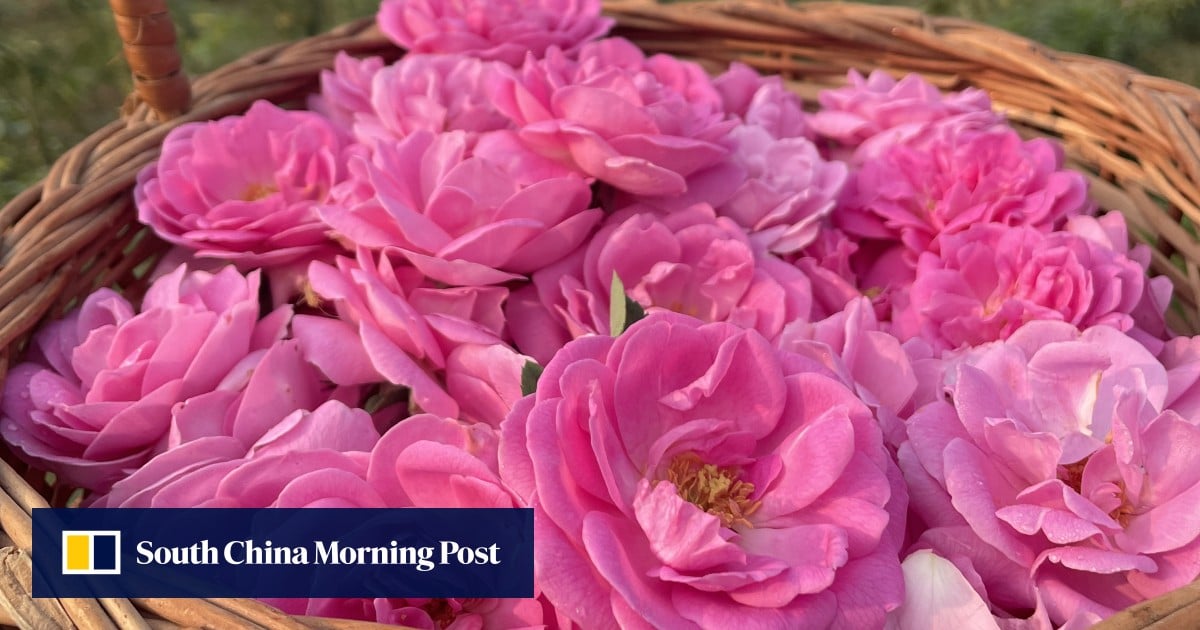Despite its rich and fragrant history, Kannauj – three hours from Agra, and the capital of North India during the reign of Emperor Harshavardhan (AD590 to 647) – receives few tourists. But that could be about to change.
An eighth-generation perfumer recently launched a tourist trail to highlight the town’s heritage and his family’s 200-year legacy in the business.
“International business visitors have been coming here since the 60s. But tourists were rare; even most Indians were unaware of the perfume making tradition here,” says Pranav Kapoor, 35, in his office in his 120-year-old ancestral haveli (traditional mansion).
‘The expression of love. Period’: where perfumers get jasmine from
‘The expression of love. Period’: where perfumers get jasmine from
At the start of the tour, Kapoor welcomes visitors into his home, the regal entrance hall painted in shades of blue, with velvet sofas, plush carpets, a perfume bar and photographs of his family.
When he was young, Kapoor didn’t imagine he would one day work in the family business, he says. But years at boarding school, studying culinary arts and working as a chef in Delhi and Mumbai, made him better appreciate the heritage of his hometown.
A walk around Kannauj takes in ornately carved, mouldering haveli mansions, the crumbling remnants of a fort, and shops in an old bazaar selling glittering bangles, jewellery and colourful bottles of attar sourced from many of the town’s producers.
The Kapoor family distillery – M.L. Ramnarain Perfumers – is an unassuming structure with an open courtyard, where a karigar (artisan) is fluffing pink rose petals, spiking the air with their heady scent.

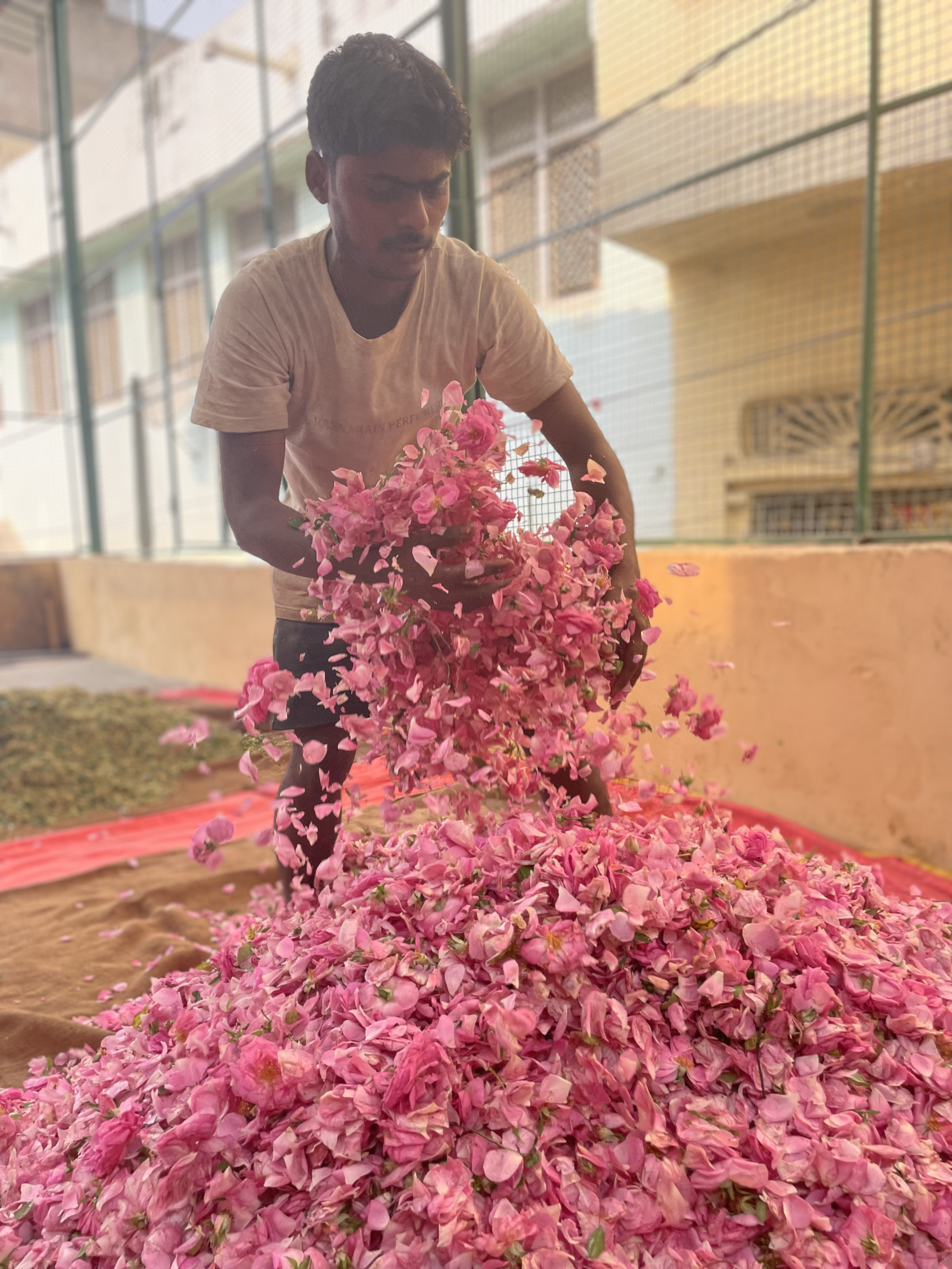
Next to the roses is a green pile of henna, the pale flowers soon to have their fragrance extracted.
I’m offered a sniff of mitti attar, which is distilled from clay sourced from potters and has the earthy aroma of rain falling on dry soil. It is a Kannauj speciality.
Distiller Ram Singh, who has worked at M.L. Ramnarain for 30 years, cheerfully explains how the traditional deg bhapka hydro-distillation process works while feeding rose petals into the deg, a copper still, in the courtyard’s inner chamber.
The still is connected by bamboo pipe to the bhapka, a long-necked vessel immersed in water that contains a base oil, in this case sandalwood. As the still heats, steam is carried into the bhapka where it condenses, the oil taking on the rose fragrance.

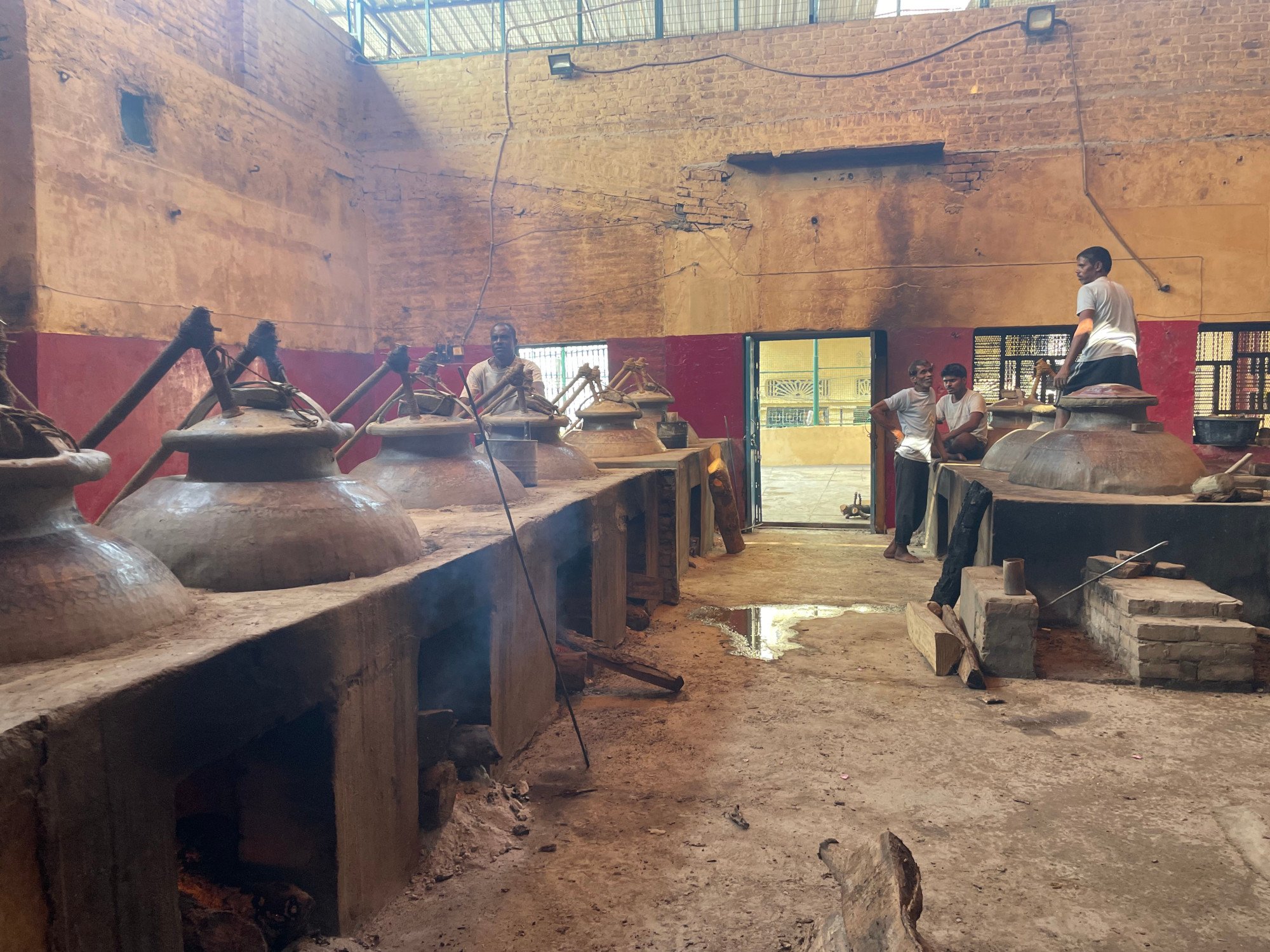
Using no electricity or thermometers, the karigars monitor the process intuitively, listening for the hiss of steam passing through the pipe, adjusting the heat to avoid the destruction of the fragrance and routinely changing the water to ensure the bhapka is cool enough to produce condensation.
What if they forget to change it in time? “That can never happen,” laughs Singh, trailing his fingers through the water to check its temperature.
Singh and his fellow karigars come from a long line of specialists who have passed their knowledge and skills down through generations.
“But my sons do not want to work here,” says Singh.
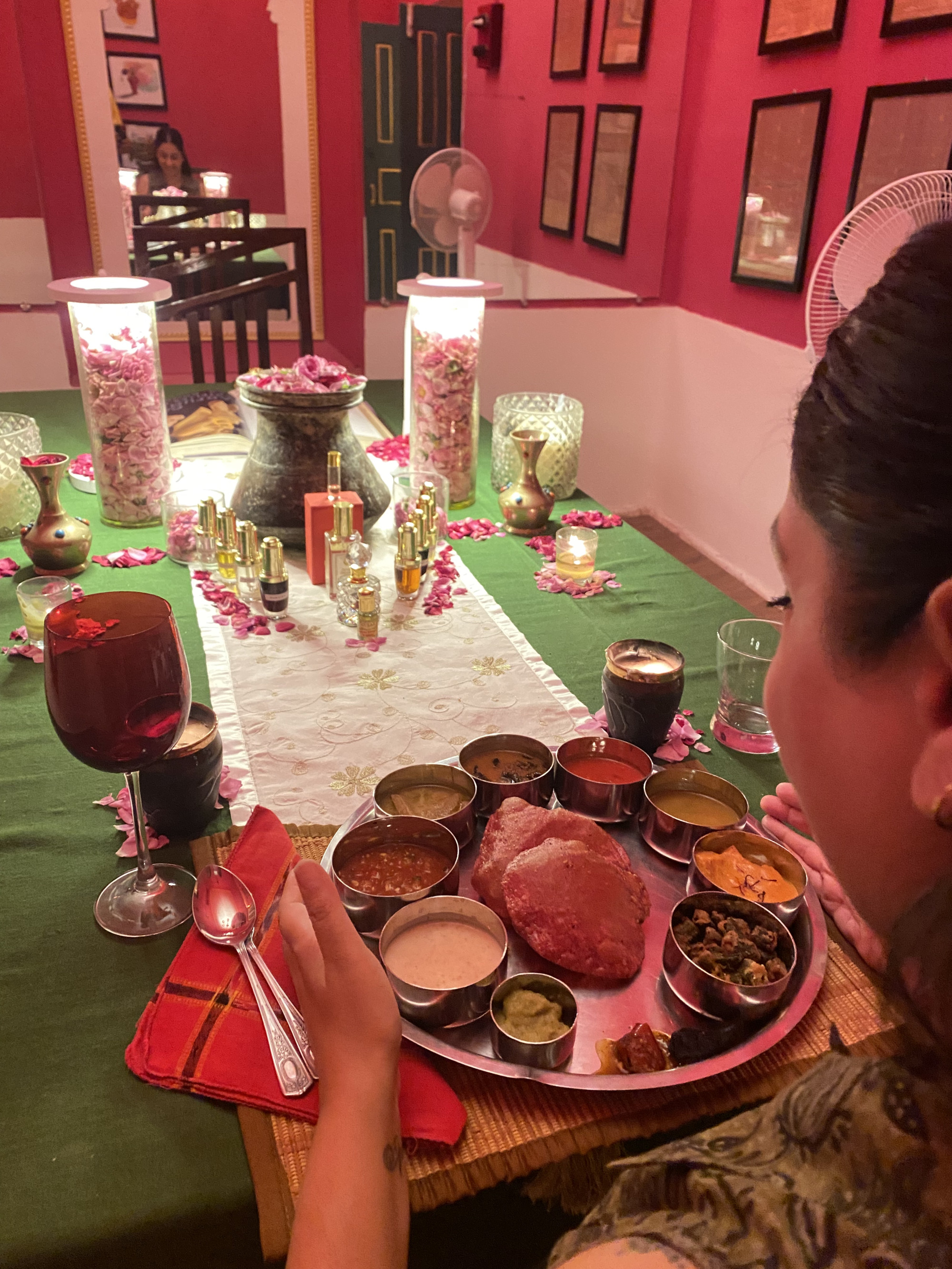

Younger generations leaving for opportunities outside small-town India is one of the challenges facing Kannauj’s perfumers. Others include the easy availability of cheaper, synthetic fragrances and the old-fashioned image of attars.
Nevertheless, says Pranjal Kapoor, Pranav’s cousin and a partner at M.L. Ramnarain, “There will always be customers for these high quality, natural fragrances.”
“It’s like cooking daal [lentils]. This can be made in a pressure cooker, microwave, or slow-cooked over a rustic fire. That’s us – the slow-cooked daal.”
Back at the haveli, visitors are encouraged to create their own scent at the perfume bar, which is lined with bottles of essential oils. Pranav Kapoor helps untrained noses create a balanced fragrance as a keepsake.
The next morning, following a night in the mansion’s guest suite – comprising a cosy study, bedroom and dining room in which Kapoor serves up family and Kannauj specialities – the tour continues at the Charkha Aromatic Farm, a 10-minute drive away and the source of M.L. Ramnarain’s flowers.
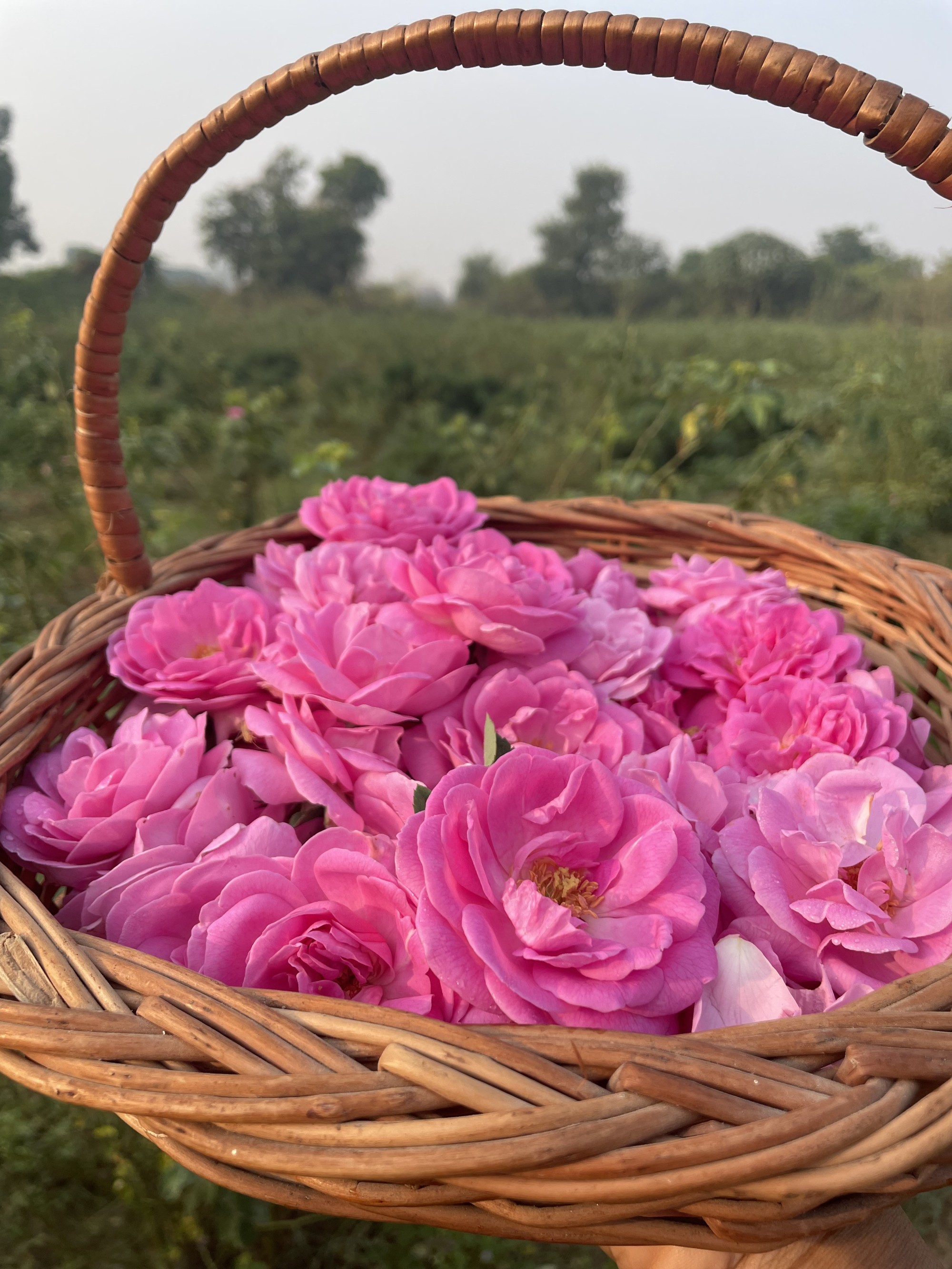
Fields are filled with rose bushes, henna, jasmine, marigold and a screw pine shrub, from which aromatic kewra, used in Indian cooking, is extracted.
Roses are harvested in the early morning – when the fragrance is strongest – on alternate days, to give the bushes time to revive. The petals are distilled the same day they’re plucked.
Kapoor is adding guest rooms to the haveli and converting an old distillery into a seven-room property with a spa and restaurant. In the longer term, he hopes his tour will motivate rival perfumers and younger townspeople to create other initiatives to promote Kannauj’s rich heritage.

